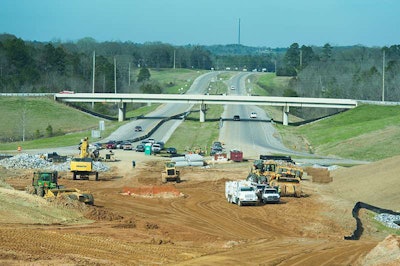
With Republicans poised to hang on to their majority in the House and possibly gain enough seats for a majority in the Senate, who stands to benefit? A top official with the American Trucking Associations calls the likely direction of a Republican Congress “a mixed bag.”
Regardless, many inudstries faces a busy year on the regulatory front, explains Dave Osiecki, ATA executive vice president and head of advocacy.
“From the trucking standpoint, if the Republican’s take control of the Senate it’s helpful in one regard, and maybe not all that helpful in another,” Osiecki said, speaking on a conference call Friday hosted by Stifel Capital Markets and transportation analyst John Larkin.
Specifically, a Republican-led Senate will likely take a more cautious approach to federal regulatory issues, “slowing down” the process with more oversight hearings and “tougher questions” for regulators, Osiecki suggested.
“So that’s a potential benefit to the trucking industry to the extent that we think maybe there’s some over-regulation going on,” he said.
“On the flip side,” however, Republicans are reluctant to raise taxes, and ATA strongly supports higher fuel taxes to to pay for the maintenance and improvement of the federal highway system.
Indeed, in listing ATA’s agenda on Capitol Hill, preserving the Highway Trust Fund and paying for highways topped Osiecki’s list.
Among the legislative “wins” for ATA in the 113th Congress, Osiecki cited the Senate Appropriations Committee vote to suspend certain restart provisions of the hours-of-service rule pending further study – even though the appropriations package stalled on the floor of the full Senate.
“Wins in the Congress nowadays are increasingly rare, because not many things are happening,” he said.
Still, Osiecki is “fairly confident” the restart language will be included in an expected omnibus spending bill to be taken up by Congress after the mid-term elections.
Looking ahead to the next Congress, ATA’s top priorities will continue to be highway funding and a permanent fix for HOS, along with numerous safety initiatives that are already at various stages in the regulatory process. (Slide 1)
Regarding those, Osiecki updated participants on the conference call as to the status of the various rulemakings and ATA position on each. (The driver-focused regulations are shown in Slides 2-5).
“The regulatory pipeline is really full – and it will continue to be full for a least a year,” Osiecki said. “Then, as many of us know, in a presidential election year like 2016 the regulatory pipeline slows down.
“The memo will be written from White House to the agencies: ‘Only issue regulations if you absolutely have to.’ And that’s not something new. It happens in both Democratic and Republican administrations and we fully expect it to be the case this time around.”








